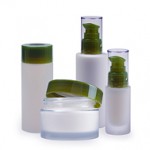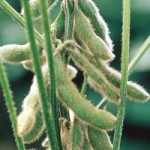Food Regulations Impact Essential Oils
 In the last few years several new European Regulations and Directives have been adopted or announced in relation to flavours and fragrances. As essential oils and extracts are very important ingredients for flavouring and fragrance applications, these new regulations will have a major impact on trade and use in commerce of these essential oils and extracts, not only in the European Union (EU) but also internationally at a global level.
In the last few years several new European Regulations and Directives have been adopted or announced in relation to flavours and fragrances. As essential oils and extracts are very important ingredients for flavouring and fragrance applications, these new regulations will have a major impact on trade and use in commerce of these essential oils and extracts, not only in the European Union (EU) but also internationally at a global level.
A major piece of legislation that is of particular importance for the flavour industry, namely the new Flavouring Regulation[1] has recently replaced the former Flavouring Directive 88/388/EEC. This Flavouring Regulation is part of a larger package, called the ‘Food Improvement Agents Package’ (FIAP), comprising the Flavouring, Additives and Enzymes Regulation and the so-called Common Authorisation Procedure (CAP). Some of the major differences between the new Flavouring Regulation and the former Flavouring Directive 88/388/EC will be discussed. Special focus will be given to the Restricted Substances (including the impact on essential oils) and the changes in definitions (e.g. what is ‘natural’) in the new Flavouring Regulation.
Until recently, the former Flavouring Directive 88/388/EC applied to flavourings in the EU.[2] It was amended once by Commission Directive 91/71/EEC of 16 January 1991.[3] As this was a Directive, it was up to the EU Member States to take the necessary measures to ensure that flavourings were not marketed or used if they did not comply with the rules laid down in this Directive, as stated in Article 3 of this Directive.
However, on 31 December 2008 the new Flavouring Regulation was published in the Official Journal of the European Communities,[1] which came into force on 20 January 2009 and which has officially applied since 20 January 2011. The full title of this Regulation is:
- Regulation (EC) No 1334/2008 of the European Parliament and of the Council on flavourings and certain food ingredients with flavouring properties for use in and on foods and amending Council Regulation (EEC) No 1601/91, Regulations (EC) No 2232/96 and (EC) No 110/2008 and Directive 2000/13/EC.
Since the application of this new Regulation, the former Council Directive 88/388/EEC of 22 June 1988, as well as its amendment Directive 91/71/EEC and the Commission Decision 88/389/EEC,[4] have been repealed.
As many essential oils and extracts either contain flavouring substances, or are regarded as ‘food ingredients with flavouring properties’ this new Flavouring Regulation will have an impact on essential oils and their use as flavouring ingredients for food products. Extracts and essential oils contain certain constituents (substances) that, according to this regulation, ‘should not be added as such to food’ or to which maximum levels apply.
They are often referred to as ‘biologically active substances’ or ‘active principles’. In particular, the application of maximum levels of these substances will have an impact on how and when extracts and essential oils, as well as herbs and spices, may or can be applied to food. Also, the definitions for ‘natural’ have drastically changed.










